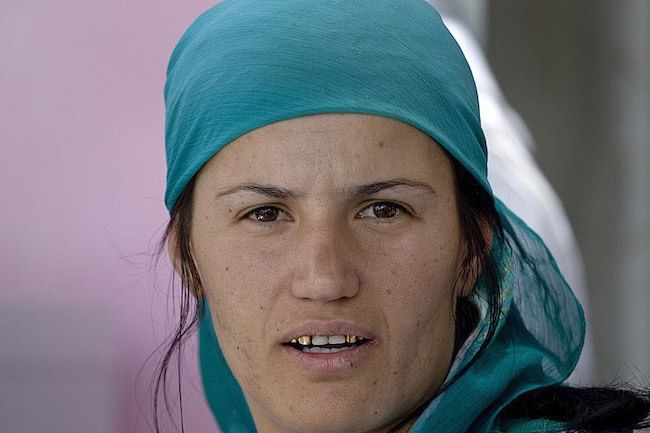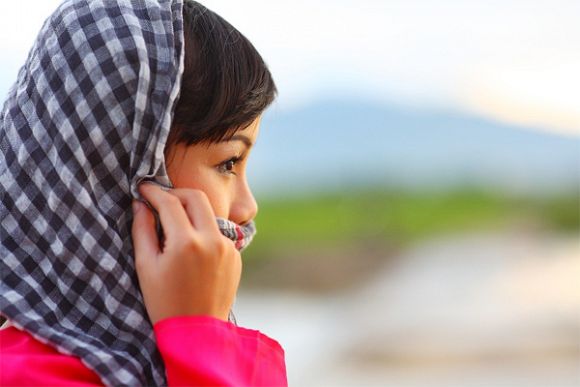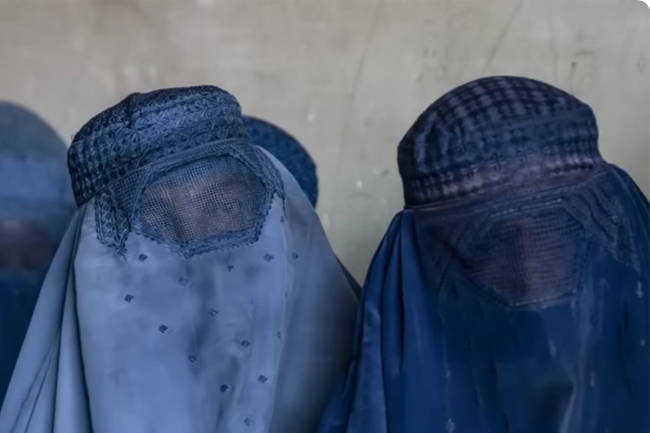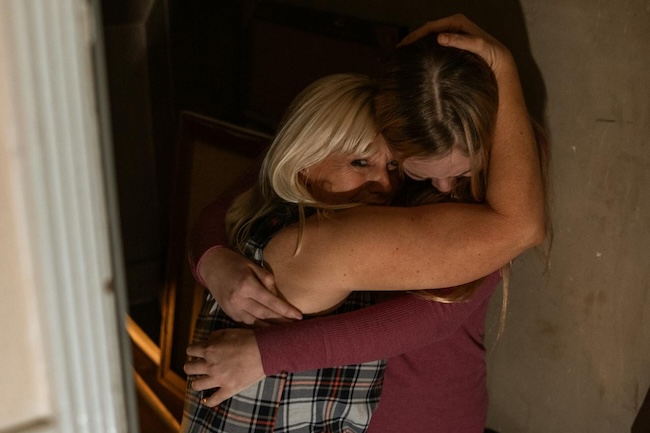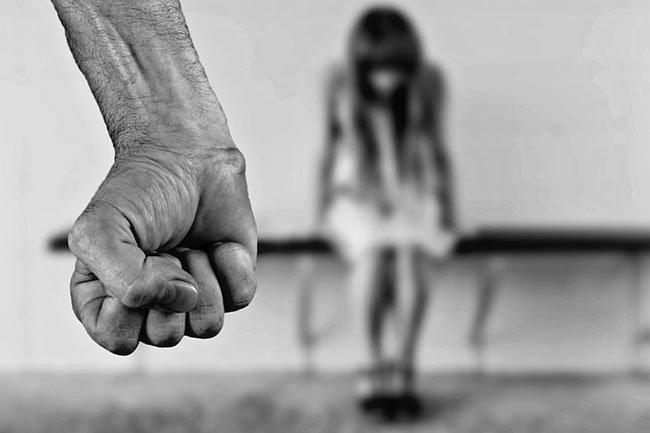In Tajikistan, like much of the Central Asia region, violence against women is widespread and stems from the highly patriarchal nature of Tajik society, writes Johanna Higgs.
*CONTENT WARNING: This article discusses rape
"There is a saying in Tajikistan that if a woman speaks against you, you should beat her. I think that this is wrong."
I was sitting in a small café in the centre of Tajikistan’s capital, talking to Mehroj Muhiddinov, a 21-year-old male student from Dushanbe, Tajikistan.
The small, Central Asian nation is known for its rugged mountains, stunning snow-capped peaks and its long history under Soviet rule. Tajikistan's population is predominantly Muslim however — it remains heavily influenced from its time in the Soviet Union.
With old Soviet-style buildings in view from the café’s window, we were talking about violence against women in Tajikistan. A situation that doesn’t appear to be good at all.
In Tajikistan, like much of the Central Asia region, violence against women is widespread and stems from the highly patriarchal nature of Tajik society. While there exists little accurate data on the problem, numerous human rights organisations, including the United Nations, have reported that violence and discrimination against women and girls in Tajikistan is widespread.
Amnesty International, for example, estimates that one-third to one-half of women have regularly been subjected to physical, psychological or sexual violence at the hands of their husbands or their in-laws.
Research conducted in 2016 for the Zindagii Shoista (Living with Dignity) project found that around 60% of women had experienced sexual, physical or emotional abuse with women aged 18-24 being the most affected.
A 2018 'National Study on Adolescents and Youth' conducted by the Center For Strategic Research Under The President Of The Republic Of Tajikistan (CSR) also found that 26% of adolescents reported having experienced at least one incident of violence in the past.
Human Rights Watch reports that violence against women can be extreme including acts such as marital rape, beatings with bricks, shovels and brooms, being burned, being stabbed, confined in an outdoor garage in cold weather, being suspended from the ceiling for hours, forcing a spouse to stand still in certain positions holding buckets filled with water, depriving a spouse of access to meals and strangulation.
While the 'Constitution of Tajikistan' guarantees equal rights to both men and women and the principle of non-discrimination is part of the legislation, Tajikistan has the lowest gender parity index in the region. As a consequence, women and girls continue to face barriers in accessing sexual and reproductive health and rights, education, economic opportunities and are consistently underrepresented in decision making roles. Women also face high levels of sexual harassment.
Muhiddinov explained:
There have been cases in schools where girls have been harassed by their professors and have been told that they have to sleep with their professors in order to be admitted into the university. The harassment of women is really obvious starting from the taxi drivers to the professors.
Each day when I’m travelling into the city and the taxi driver will try and hit on them. If the women try and yell at them, they make fun of them, it’s like a psychological attack and they make them feel like they are not important. When a woman speaks up, then they start to degrade her and then they are really rude.
A 25-year-old woman in Dushanbe, who asked not to be named, explained that sexual harassment is a regular and frightening part of daily life.
She said that harassment on the street happens every day:
Once, me and my friend were on a minibus. My friend was sitting behind me. Two boys started to touch her and say some bad words. She was quiet and didn’t say anything, then they started to touch her more and she started to argue with them. When I saw what they were doing I started to say something. There were other people on the bus but they did nothing. I asked them why they weren’t doing anything, they just said: 'What can we do?’
Behruz Boev, a 23-year-old graduate student from Dushanbe, believes the situation of women and girls is:
... better here now than it was before.Though I don’t like letting my girlfriend go places alone because we know that there are men who will say bad things. We don’t really know why they are doing these things, most of them are educated but they are frustrated because they have no girlfriend or wife. Even men who work in the government do these things. People who see these things happening don’t do anything — they are afraid that someone is going to attack them.
Officially, sexual harassment can be punished by law as it can be classified under other articles of the criminal code, such as petty hooliganism. The Supreme Court in Dushanbe has reportedly considered cases of sexual harassment however, reports suggest that authorities have little understanding of the problem and have perceived reports of sexual harassment as being merely "female fabrications".
Gayurova Frosatmo, a lawyer and director working for the small non-government organisation Women for Justice, in the small town of Khorog on the border with Afghanistan, says that part of the problem with sexual harassment in Tajikistan is that often the law enforcers are the harassers.
Frosatmo explained:
"If a woman goes to a judge to complain about sexual harassment or to apply for divorce then he will start to harass her. There was a situation where a girl went to the police with a problem and the police officer raped her. There are many cases of this."
However, aside from the lack of legal protection for women and girls, part of the problem lies with social and cultural attitudes that give men rights over women’s bodies.
Said Muhiddinov:
As a man, if you would try to intervene with harassment on the street they would question if you are a man. If you see a woman being beaten and you try to help, then they will tell you to go away and that it is not your business. All men have the same belief, that they want to control women so they would question why a man would try and stop another man from this controlling [behaviour].
The problem is made worse by social expectations that women should tolerate the violence perpetrated against them.
According to a 2016 study by research organisation Tahlil va Mashvarat (Analysis and Advice), the Committee on Women and the Family (CoWFA) and Oxfam, 97% of men and 72% of women believed that a woman should tolerate violence to keep the family together.
Boev agrees that part of the problem with sexual harassment in Tajikistan is the silence:
"The problem is very few girls speak out against men insulting them. If more people spoke out about this then it would be better."
But Muhiddinov pointed out:
"Men [are] not aware of how much harm they’re causing. There should be punishment for these things. They also need to be taught that these things are wrong. Men are selfish."
If you would like to speak to someone about sexual violence, please call the 1800 Respect hotline on 1800 737 732 or chat online. Also, you can call Lifeline on 13 11 14.
Johanna Higgs is an anthropologist and founder of Project MonMa, which advocates for women’s rights around the world.
Related Articles
- Morrison Government sends Australia backward in women's rights
- Texas abortion laws: A modern Handmaid's Tale
- The real shame: Forcing women to marry their rapists
- What Britney Spears' conservatorship says for all women
- Domestic violence against women escalating in Italy
 This work is licensed under a Creative Commons Attribution-NonCommercial-NoDerivs 3.0 Australia License
This work is licensed under a Creative Commons Attribution-NonCommercial-NoDerivs 3.0 Australia License
Support independent journalism Subscribe to IA.



